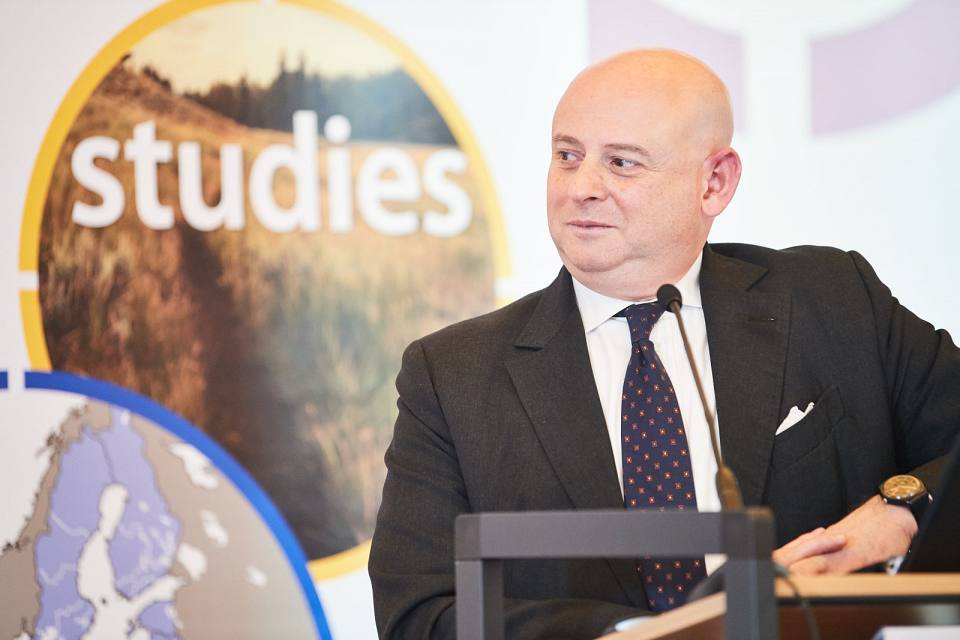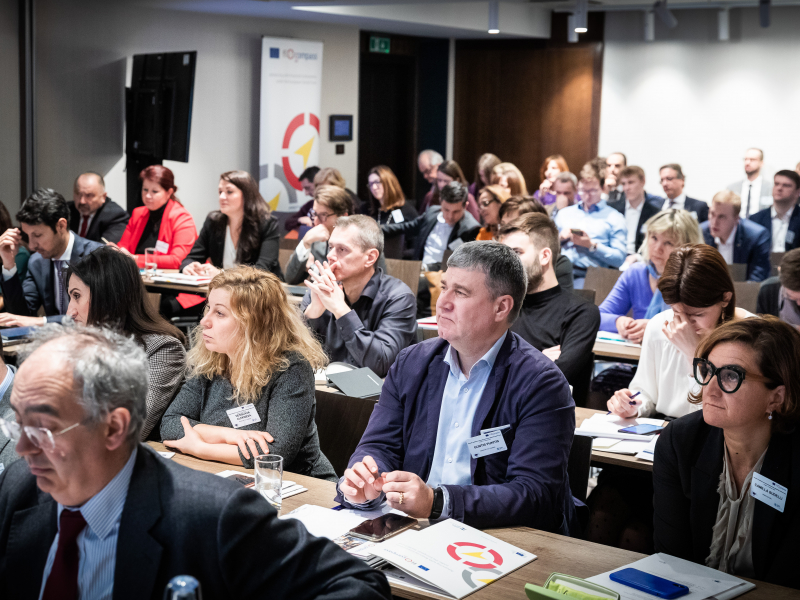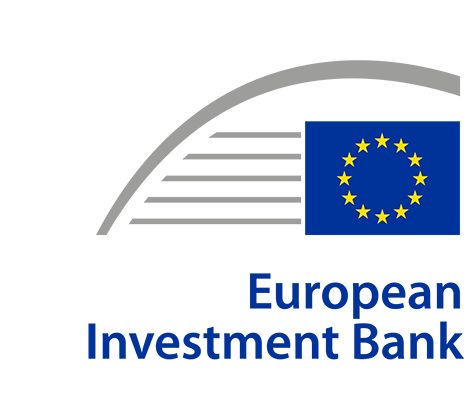fi-compass achievements in an exceptional year - short interview with Bruno Robino, Head of fi-compass at the European Investment Bank

Looking back at 2020, what are your views on the work accomplished by fi-compass so far?
Last year has been characterised by the COVID-19 outbreak, certainly one of the most severe pandemic crisis affecting the globe. Cohesion policy has been, and will continue to be key in ensuring a balanced recovery following this pandemic, fostering convergence and making sure that no one is left behind.
As a first response to the pandemic, ESIF financial instruments played an important role in supporting our economies: structural Funds and national resources were used to scale up existing financial instruments in support of SMEs through loan and guarantee products to ensure continued supply of finance to businesses in need of liquidity and finance to support working capital.
Despite the unprecedented challenges brought about by COVID-19, a lot has been achieved, also thanks to the quick reaction of the European Commission in spring 2020. In May 2020, the European Commission launched the Coronavirus Response Investment Initiative, which allowed for relaxations of the existing rules in support of financial instruments.
Other measures, such as the Temporary Framework on State Aid and the Public Procurement communication were also helpful in securing a quick response to the crisis.
These changes were summarised in the fi-compass factsheet “Responding to the COVID-19 crisis through financial instruments”, published in May 2020.
Moreover, two mini-studies under ERDF and ESF completed the publication, illustrating how managing authorities provided better support to SMEs in Poland and Slovakia, by introducing some modifications to the financial instruments criteria.
We had to think creatively and find new ways of staying in touch with our financial instruments practitioners. We organised our first webinar on 11 May to raise awareness on the new flexibilities on ESIF financial instruments and provide examples of successful managing authorities using financial instruments to tackle the effects of the pandemic.
The webinar attracted more than 500 participants from managing authorities, financial intermediaries, EU institutions and other ESIF stakeholders and we were very proud to see all our audiences coming together in this new event format.
With the launch of our podcast series, we went the extra mile to stay connected to our stakeholders and to continue to provide up-to-date content to our audiences. This new product allowed us to reach out to managing authorities in Europe, giving them an opportunity to hear from financial instruments experts around Europe at their own pace, through short audio interviews published on the main podcasting platforms.
"So, if I were to sum up 2020 in two words, I would say that this challenging year was marked by creativity and innovation."
Bruno Robino, Head of fi-compass, EIB
What else was carried out under fi-compass in 2020 to increase the uptake of financial instruments across the EU?

Reacting to the pandemic and staying close to our financial instruments practitioners kept us busy for the first half of the year. The second half, on the other hand, was dedicated to preparing the ground for the new programming period. We launched a new webpage that aims to provide a one-stop shop for 2021-2027 resources for managing authorities, to help them plan their financial instruments going forward.
We believe financial instruments - including in combination with grants - will become more and more important to support investments under the 2021-2027 Multiannual Financial Framework; a programme that will be considerably boosted by the Next Generation EU recovery fund.
We expect financial instruments under ERDF and ESF+ to be key in supporting investments in job creation and growth through research and innovation, digital transition, the European Green Deal, integrated and sustainable development and the promotion of social entrepreneurship and social inclusion. Equally EAFRD and EMFF investments through financial instruments will be used to strengthen the resilience of the agri-food and fisheries sectors.
In particular, during the last years, it became obvious that financial instruments co-funded by EAFRD may be a sustainable and efficient way to invest in the growth and development of farmers businesses, including young farmers and businesses in the agriculture and in the agro-food sectors, pursuing food security as well as environmental and climate EU objectives.
In 2020, we also helped Member States to mobilise their resources as quickly as possible under the new programming period. fi-compass published a series of market studies on key priority sectors for Cohesion policy. These studies, together with other relevant resources are available on the new fi-compass webpage entitled #ficompass2021 – One stop shop for 2021, which I strongly advise you to visit.
Can you give us some examples of these market studies in support of ERDF financial instruments?
As I said before, we issued new studies in support of ERDF managing authorities willing to set up financial instruments under the 2021-2027 Operational Programmes. For example, as most financial instruments target SMEs, in spring 2020, we published the report ‘Gap analysis for small and medium-sized enterprises financing in the European Union’.
The report consists of a detailed analysis of equity and debt financing gaps and market failures relating to SME financing in all EU Member States and identifies the potential for financial instruments to address those financing needs.
The fi-compass ‘Stocktaking study on financial instruments by sector’ focuses on five key sectors in which financial instruments have been under-utilised in the 2014-2020 programming period. The report identifies potential investment opportunities for the 2021-2027 programming period and constitutes the go-to read for managing authorities interested in renewable energy, urban development and transport, environment, ICT and research as well as innovation for SMEs.
Financial instruments under ERDF will play a key role in supporting this energy transition.
In October 2020, fi-compass published a study on the potential to use ERDF financial instruments to finance energy efficiency projects. This study contains an analysis of the financing gap for energy efficiency in the 27 Member States and provides a summary of potential use of financial instruments in this sector in the upcoming programming period.
Lastly, the European Green Deal, the European Commission’s roadmap to make European economies sustainable, will underpin the importance of investing in energy efficiency to renovate buildings and help EU Member States meet the objectives of the Paris Agreement.

What about other sectors?
In 2020, fi-compass published the ‘Study on financial needs in the agriculture and agri-food sectors in 24 EU Member States’, to support EAFRD managing authorities in planning and programming the use of financial instruments in their CAP Strategic Plans for the 2021-2027 programming period.
Those reports build on the results of two EU-level surveys focusing on access to financing conditions of more than 7 600 farmers and 2 200 agri-food enterprises. They identified a significant financing gap of EUR 19.7- 46.6 billion for agriculture and more than EUR 12.8 billion for the agri-food sector.
They also shed light on investment drivers, financing supply and relevant difficulties in accessing finance for the two sectors, with a focus on young farmers in 24 EU Member States, providing recommendations to EAFRD managing authorities on how to address the identified gaps.
Our activities in support of ESF financial instruments were characterised by an event organised in Prague in February 2020, on the opportunities and challenges of setting up ESF financial instruments to facilitate the access to higher education of students and workers.
We also organised a very well attended webinar before the summer, on the possibilities offered by crowdfunding and ESIF, with an emphasis on the European Social Fund. In the realm of alternative finance, crowdfunding is established as a reliable funding source for small and micro undertakings, often catering to ESF-type target groups, including young entrepreneurs, socially oriented businesses and vulnerable categories.
During the webinar, we advertised the publication of our Crowdfunding Manual, produced in collaboration with DG EMPL to help Managing Authorities experiment financial instruments in combination with crowdfunding.
The manual builds on ground-breaking experiences across the EU and analyses the challenges and opportunities of establishing partnerships with crowdfunding platforms.
Financial instruments can play an important role in this process, helping to meet the liquidity needs of many platforms and building trust on the investors’ side.
A very successful year indeed, Bruno. Is there anything else you would like to add?
Yes, during 2020, our activity was not limited to the production of manuals and market studies to prepare the ground for the new programming period.
As I said before, since March last year, we had to think of new ways to reach out to our audiences and keep up our awareness raising role: in 2020 fi-compass organised two face to face events and sixteen webinars on various ESIF financial instruments topics, gathering more than 2 000 participants from all over Europe. The last one being the ERDF flagship conference which took place early December 2020.
We experimented new event formats but also innovative communication channels such as podcasts and a more interactive format for the Beacon, our quarterly newsletter. We were also very active on social media and attracted more than 2 564 followers (LinkedIn and Twitter together).
I am proud of fi-compass’ accomplishments this year and together with the fi-compass team, let me take this opportunity to thank all of our readers, followers and ESIF stakeholders for their continuous interest and support. I wish you all a prosperous and healthy 2021!

